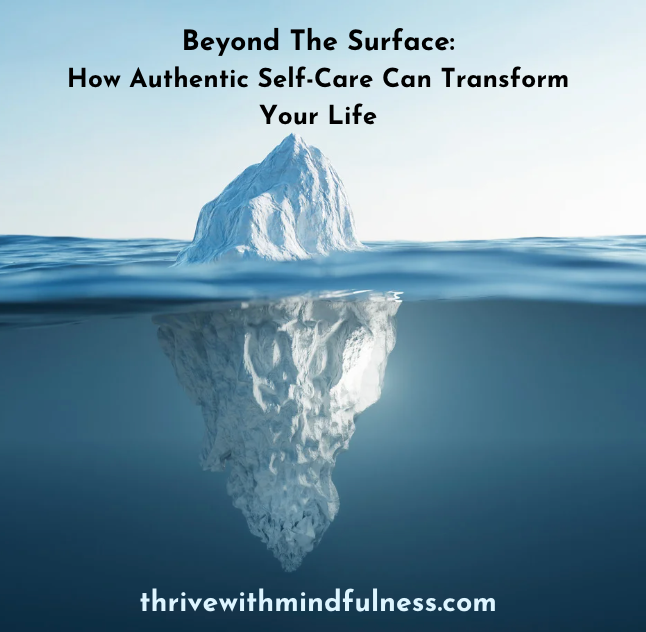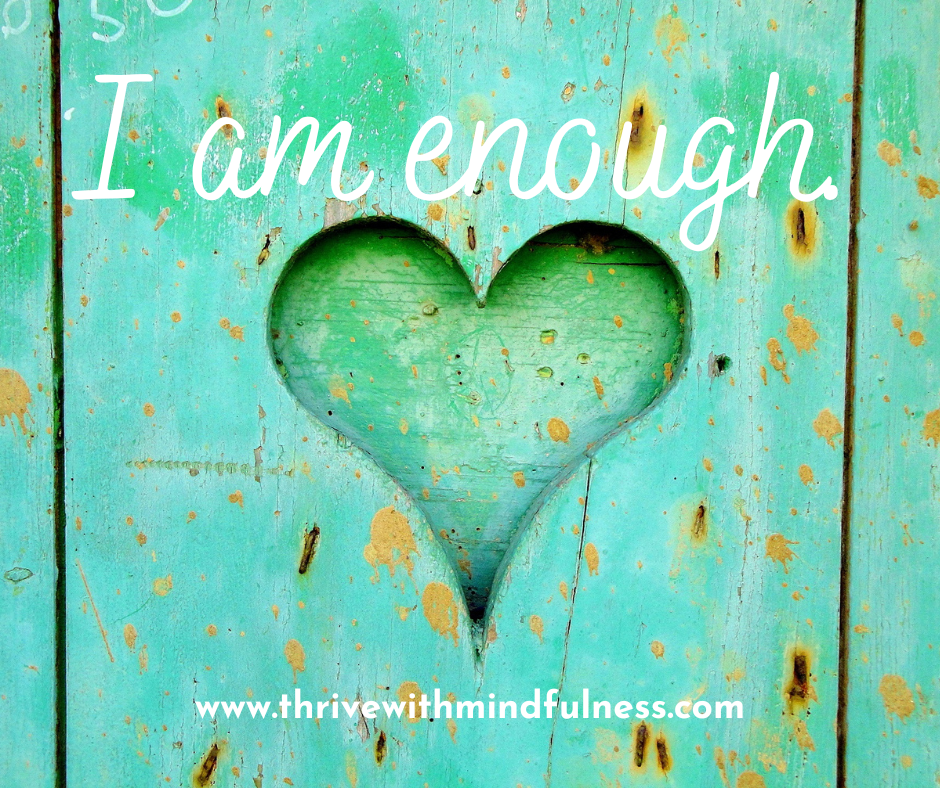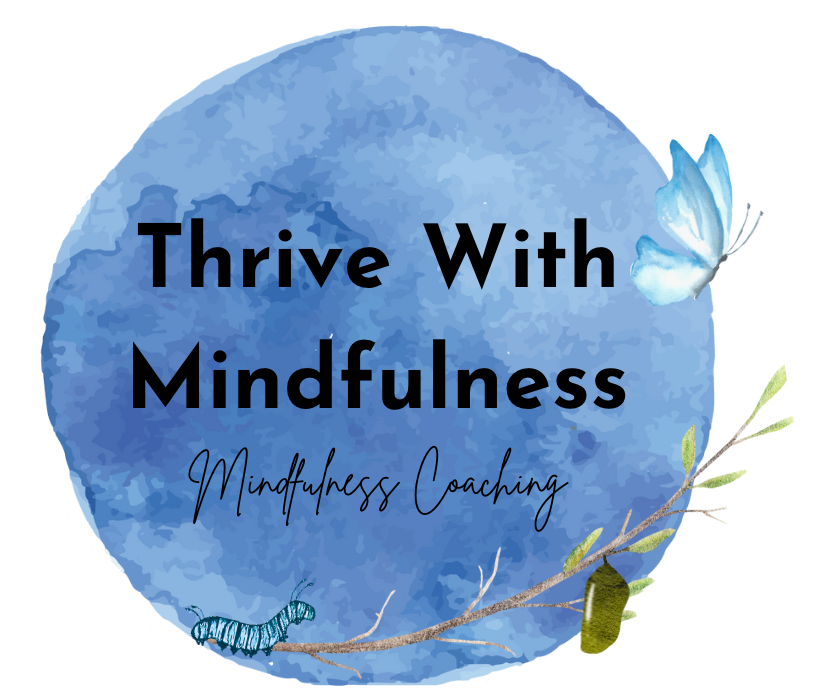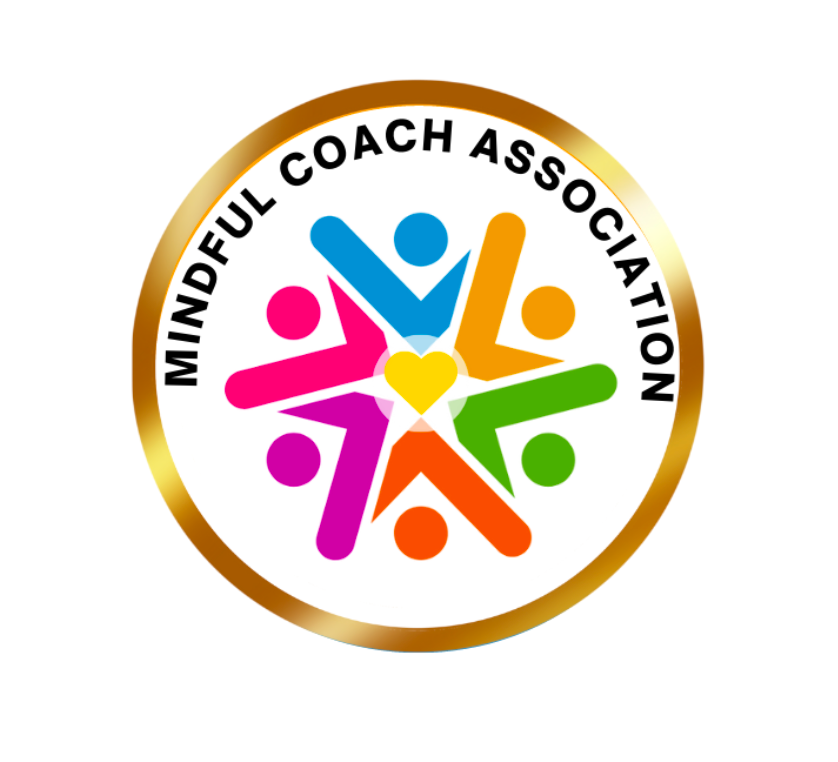The Positive Impact of Social-Emotional Wellbeing on Academic Success

We know that academic success is important for our children, but few of us realize the true importance of social-emotional wellbeing and its impact on academic success.
Social-emotional wellbeing is the way a person processes and expresses emotions, interacts with others, and navigates social situations. It is also a key indicator of overall health and helps children develop into emotionally healthy, productive individuals.
Social-emotional wellbeing is directly linked to academic success
A mounting body of evidence shows that social-emotional wellbeing is directly linked to academic success. Research has found that children who have a strong sense of social-emotional wellbeing are more likely to have higher grades, better attendance records, and better test scores. This is due to the fact that strong social-emotional wellbeing helps children cope with stress and manage their emotions, allowing them to focus on their studies and stay motivated. In addition, strong social-emotional wellbeing helps children build meaningful relationships with their peers and teachers, which can have a positive influence on their academic performance. Children who have strong connections with their peers and teachers are more likely to participate in class, ask questions, and receive support and guidance when needed.
Finally, strong social-emotional wellbeing can also lead to better decision-making skills, which can help children make better choices about their studies and their lives in general. For example, children with strong social-emotional wellbeing are more likely to take responsibility for their own learning, seek help when needed, and stay on task. In short, social-emotional wellbeing has a direct and positive impact on academic success. By helping children develop strong social-emotional wellbeing, we can ensure that they are better prepared to succeed in school and in life.
Can social-emotional wellbeing have such a positive impact on academic success?
It all starts with understanding how the brain works and protects us from perceived danger. The amygdala is the part of the brain responsible for the “fight or flight” response to dangerous situations. When the amygdala perceives danger, it triggers the release of hormones such as adrenaline, which leads to the body’s physical reaction. The amygdala is often triggered by stress, which can interfere with the functioning of the prefrontal cortex – the part of the brain responsible for higher order thinking and problem-solving. That’s where mindfulness can help.
Mindfulness is the practice of focusing on the present moment and being aware of one’s thoughts and feelings without judgment. This can help reduce stress levels, which in turn can help keep the amygdala from being triggered and allow the prefrontal cortex to function properly. This can lead to improved cognitive functioning and better academic performance. Furthermore, mindfulness can also help with social-emotional wellbeing. Studies have found that mindfulness can help improve emotional regulation and empathy, which can lead to better communication, increased resilience and improved relationships. All of these benefits can have a positive impact on academic success.
Practicing mindfulness with kids for emotional success
Practicing mindfulness can help our kids stay in the present moment and better manage difficult emotions, such as anxiety and stress. In addition, regular mindfulness practice can help kids develop better self-awareness and self-regulation skills, which are essential for academic success.
When parents establish their own mindfulness practice, their childrenautomatically benefit. Some of the most profound benefits are improved emotional regulation, increased empathy and compassion, better coping skills, improved focus and concentration, and a stronger parent-child bond.
Conclusion
Practicing mindfulness can bring numerous benefits to not only you as a parent, but also to your children and the entire family dynamic. So if your child needs support with academic success, concentration, or social skills, it is definitely worth investing the time in yourself to establish a mindfulness practice.
Unsure of where to start?
Check out our FREE mini-course called Crafting The Family You Want!
To enroll, just click the link, sign up, and this
self-paced, online course will be delivered directly to your inbox!

Hi I'm Traci Mausolf,
I invite parents, and those who work with them, to sign up for my free mini-course, Crafting The Family You Want. This mini-course is specifically tailored for parents who are seeking to bridge the gap between their current parenting experience and their desired vision. Whether you are facing challenges in communication, struggling with misalignments in family dynamics, or simply seeking to enhance the overall well-being of your family, this workshop is designed to provide you with practical strategies and tools for positive change.
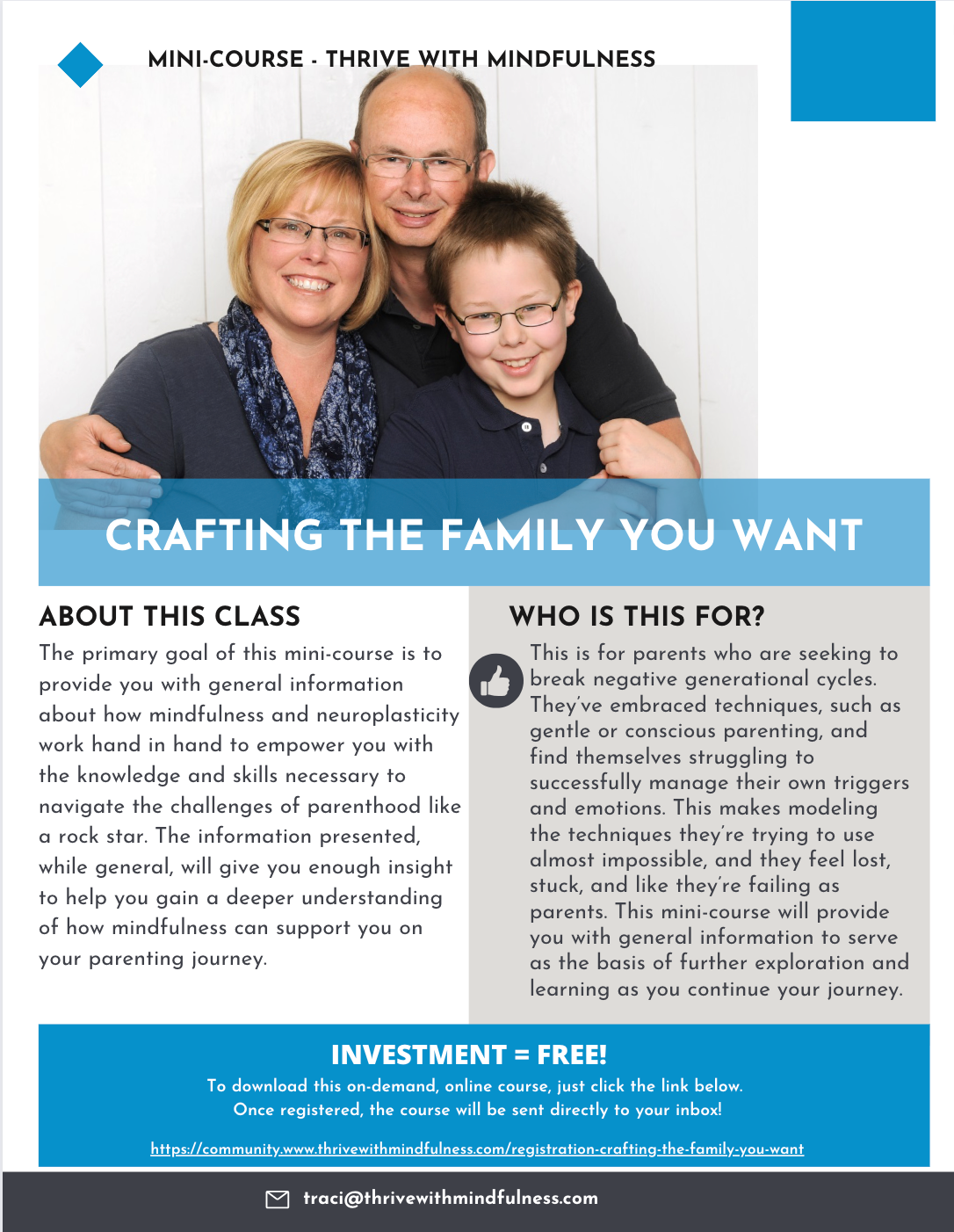
Share this post




